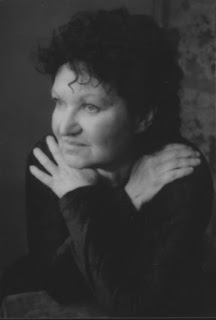Beverly Gologorsky is the author of the new novel Can You See the Wind?. Her other books include the novel Every Body Has a Story, and her work has appeared in a variety of publications, including The New York Times and The Nation. She lives in New York City.
Q: What inspired you to write Can You See the Wind?, and how did you create your cast of characters?
A: Cast of characters, of course are compositions of feelings, memories, and help from the muse.
The impulse behind this novel is my deep concern about the roles of struggle and change, about what is and what still must be done, and about how all of these affect those who are the people in the book, but also in many ways represent the struggles of people everywhere.
Q: The author Jane Lazarre (whose work also appears as an epigraph in the book) says: "Gologorsky weaves the complex threads into a tight fabric of gorgeous, spare writing about political resistance, a passionate love affair, and a family saga—a story of our collective past told through the lives of unforgettable characters. And in a kind of miraculous way it becomes as well a story of our own time—its upheavals, uncertainties, and commitments, the slow pace of change and the redemption of action and of love.” What do you think of that description, and do you see links between the two time periods?
A: I'm flattered and made hopeful. Though I didn't intentionally write the book as a link between then and now, I nevertheless do see the connection as we continue today to struggle for equality and against racism, which remains a fight yet to be won.
Q: How was the book's title chosen, and what does it signify for you?
A: In the novel, a prisoner at Attica just before the 1971 takeover says to his visiting mother: "Mom, change is like the wind. Can You See the Wind?" And from his mouth came the title.
For me, it signifies a belief in the ability of ordinary people to change injustice, which has been accomplished in eras of the past and which lives on as an example of what still must be done.
Q: Did you need to do much research to write the novel, and if so, did you learn anything surprising?
A: Actually, to my surprise, I didn't need to do any research. I lived through and was active during those years. I believe for myself and for many others those experiences remain not only as memories but also as proof of what can be achieved.
Q: What are you working on now?
A: I'm in the midst of a novel about poverty and addiction and mothers and daughters.
Q: Anything else we should know?
A: I hope Can You See the Wind? will be read with joy and page-turning interest, but also as a novel that offers hope and strengthens resolve for change.
--Interview with Deborah Kalb


B. Gologorsky's vision is as vivid today as it always was back in the day on the barricades against the Vietnam War, racism, patriarchy, and all forms of oppression. And to weave these threads into a compelling novel is a rare gift to us all.
ReplyDelete